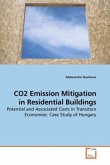
6,99 €
inkl. MwSt. und vom Verlag festgesetzt.
Sofort per Download lieferbar

Broschiertes Buch
Potential and Associated Costs in Transition Economies: Case Study of Hungary
2009
VDM Verlag Dr. Müller
Ähnliche Artikel

5,99 €
inkl. MwSt. und vom Verlag festgesetzt.
Sofort per Download lieferbar

10,49 €
inkl. MwSt. und vom Verlag festgesetzt.
Sofort per Download lieferbar
eBook, ePUB
22. Mai 2024
BreadSalt

10,49 €
inkl. MwSt. und vom Verlag festgesetzt.
Sofort per Download lieferbar
eBook, ePUB
29. Mai 2024
BreadSalt

6,99 €
inkl. MwSt. und vom Verlag festgesetzt.
Sofort per Download lieferbar
eBook, ePUB
22. Mai 2024
BreadSalt

10,49 €
inkl. MwSt. und vom Verlag festgesetzt.
Sofort per Download lieferbar
eBook, ePUB
29. Mai 2024
BreadSalt

12,99 €
inkl. MwSt. und vom Verlag festgesetzt.
Sofort per Download lieferbar
eBook, ePUB
29. Mai 2024
BreadSalt

4,99 €
inkl. MwSt. und vom Verlag festgesetzt.
Sofort per Download lieferbar
eBook, ePUB
22. Mai 2024
BreadSalt

10,49 €
inkl. MwSt. und vom Verlag festgesetzt.
Sofort per Download lieferbar
eBook, ePUB
22. Mai 2024
BreadSalt

6,99 €
inkl. MwSt. und vom Verlag festgesetzt.
Sofort per Download lieferbar
eBook, ePUB
22. Mai 2024
BreadSalt

7,99 €
inkl. MwSt. und vom Verlag festgesetzt.
Sofort per Download lieferbar
eBook, ePUB
29. Mai 2024
Bombora
Ähnlichkeitssuche: Fact®Finder von OMIKRON
